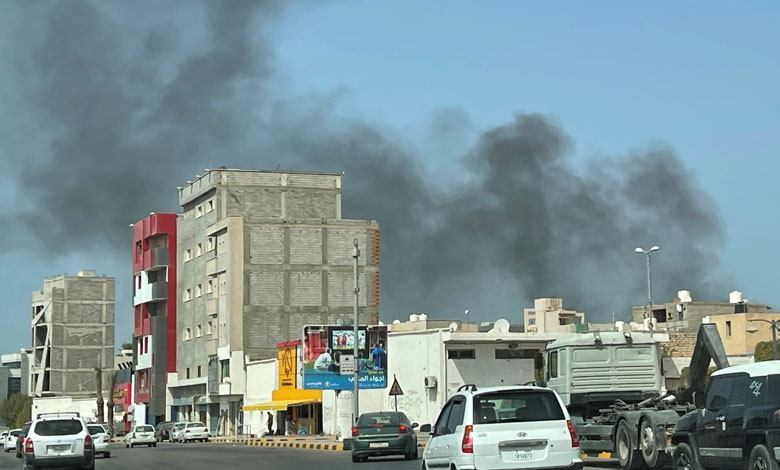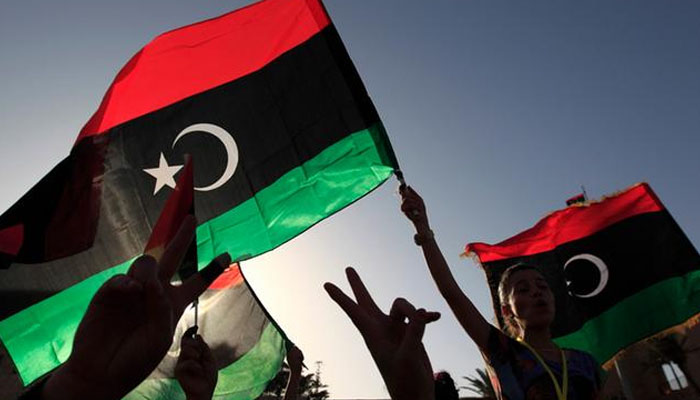Libya.. Renewed clashes in Tripoli

The Libyan state has been living through difficult times since the violent clashes between the militias of “Abdul Hamid Dbeibeh” and “Fathi Bashagha”, amid calls from the international community and Arab countries to calm the atmosphere in Libya and give priority to the language of dialog in order to stabilize the state and protect it from sabotage and destruction.
Dbeibeh Militias
Libyan military sources revealed military movements by militias loyal to the outgoing Prime Minister of National Unity, Abdul Hamid Dbeibeh, in the vicinity of the capital, Tripoli, after the clashes that took place last week with the forces of the President of the National Stability Government, Fathi Bashagha. These movements come in the context of the repositioning of these militias, and clashes are expected to resume, adding that the Joint Operations Room asked one of the militias to hand over all of its weapons.
Hafter warning
For his part, Field Marshal Khalifa Haftar, the General Commander of the Libyan National Army, threatened once again to intervene to resolve the power struggle in the capital Tripoli between the interim “unity” government led by Abdul Hamid Dbeibeh and the parallel “stability” government headed by his rival Fathi Bashagha, coinciding with news of the upcoming visit of the Speakers of the House of Representatives and the Supreme Council of the State, Aguila Saleh and Khalid al-Mishri, to Cairo.

Haftar considered in an indirect comment, his first on the recent clashes in the capital Tripoli, saying: “We must be careful, we did not build the national army to stand by watching Libya, dragged into the abyss by those who are trying to stay, pointing out that the decisive solution remains in the hands of the people, who must lead the scene to regain their rights themselves and to build their nation and to rebuild their country, and to protect it and to protect it, and to reorganize it He called on the people and the army to rectify the situation before it is too late, saying that they are one hand capable of breaking the political idols.
International and arab concern
In the same context, UN Under-Secretary-General for Political Affairs Rosemary DiCarlo expressed her fear of a resurgence of violence in Libya, where “no progress has been made” towards holding the elections, adding that this “impasse” poses “an increasing threat to security in Tripoli and its surroundings, and possibly to all Libyans,” a threat that was “realized” a few days ago. The United Arab Emirates condemned the recent armed violence in Libya, and called on all parties to immediately stop military operations, stressing the importance of all armed groups and militias leaving civilian areas in Tripoli urgently and ensuring the security and safety of unarmed civilians, especially women and children, and civilian and medical facilities, and not exposing them to further danger.
The United Arab Emirates reminded the concerned parties and all parties in the State of Libya of their obligations under international humanitarian law, calling for the exercise of the utmost restraint and for listening to the voice of reason and wisdom to get out of the current crisis. It urged the United Arab Emirates to renounce division, restore calm and give priority to the language of serious dialog and national interest, in order to restore security and stability to Libya, warning that a return to clashes and escalation is not a solution and will only bring destruction to all Libyans.
Forces of evil
Radwan Al-Fitouri, a Libyan political analyst, said that the current events in the Libyan capital Tripoli are not the first and will not be the last, pointing out that Abdul Hamid Dbeibeh will not hand over power to Fathi Bashagha, the prime minister-designate, explaining that there are those who are behind Dbeibeh for not handing over power to benefit from its presence, foremost among them the Muslim Brotherhood and Al-Qaeda, in addition to benefiting his family. He added that the forces of evil are gathering around Dbeibeh to prevent the liberation of Libya and fight the Libyan army, stressing that there is no country without an army.
The Libyan political analyst said that the acts of sabotage and violence during the past few days, which are expected to be renewed, are mainly due to the political process blockage several years ago due to the presence of these armed entities that only owe allegiance to their direct leadership and do not abide by any decisions issued by the government or military leaders affiliated with this government. For this reason, the political situation will remain hostage to these armed groups.












